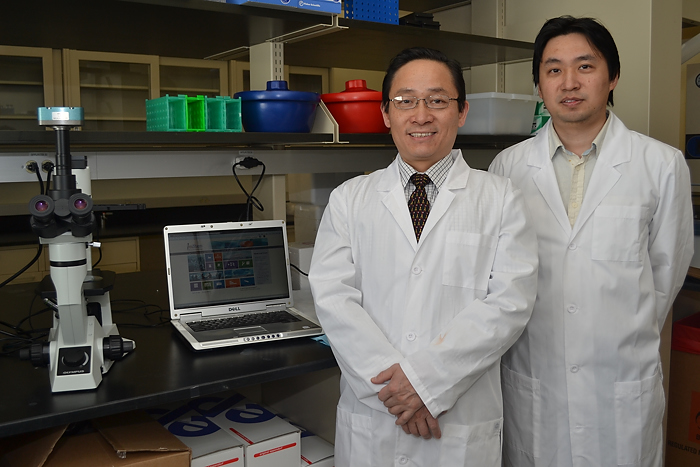ImStem Biotechnology, a biopharmaceutical company located in UConn’s Technology Incubation Program (TIP), has an aspiring goal. They’re trying to revolutionize how serious diseases are treated with a new generation of regenerative and cellular therapies.
The company recently announced a major step forward in their R&D efforts – the U.S. Food and Drug Administration (FDA) has removed the clinical hold on ImStem’s Investigational New Drug (IND) to evaluate their cell product candidate, IMS001, for the treatment of multiple sclerosis (MS). ImStem believes IMS001 is the first allogeneic, human embryonic stem cell derived mesenchymal stem cell therapy of its kind to be accepted for clinical trial by the FDA. The company plans to initiate a phase 1 clinical study in patients with relapsing-remitting, secondary, and primary progressive forms of MS in 2020 in the US.
A recent study found that nearly 1 million people over the age of 18 in the US have been diagnosed with MS. Through an immune-mediated process, MS disrupts communication between the central nervous system and the rest of the body, causing physical, mental, and sometimes psychiatric problems. The underlying cause of the disease is still unknown.
ImStem’s first product, IMS001, is based on pioneering research from two co-founders, chief technology officer, Dr. Xiaofang Wang, and Dr. Ren-He Xu, former director of the UConn Stem Cell Institute. Xu is one of a handful of scientists in the world who have generated new human embryonic stem cell lines. Named CT1 and CT2, the lines were a major success for Connecticut’s $100 million stem cell program.
Since it was incorporated in 2012, the company has focused on the development of human embryonic stem cell derived mesenchymal stem cells (hES-MSC), through a proprietary method for the treatment of neurological, autoimmune, and rare orphan diseases.
“As an inventor of our proprietary technology, we look forward to building on a history of innovative research, and we are so grateful for the continuous support we have received from the University of Connecticut,” says Wang.
“After our 8-year research on hES-MSC at the University of Connecticut and the University of Macau, this is really fantastic news for us to advance IMS001 as a potential cell drug to a clinical trial and realize the therapeutic value of human embryonic stem cells in patients,” says Xu.
IMS001 is an investigational cell product to be administered intravenously to patients suffering from MS. The technology builds on previous studies with researchers from UConn Health that demonstrated potential advantages of hESC-MSCs that could lead to effective therapies for MS, such as their potential to stabilize the blood-brain barrier. These mechanistic properties could reduce MS relapses, the progression of disability caused by the disease, and induce disease arrest, says the ImStem team.
“As a company, we are excited to have reached this clinical stage and to move one step closer to providing an effective treatment option for patients suffering from MS,” says Dr. Michael Men, chief executive officer of ImStem.



